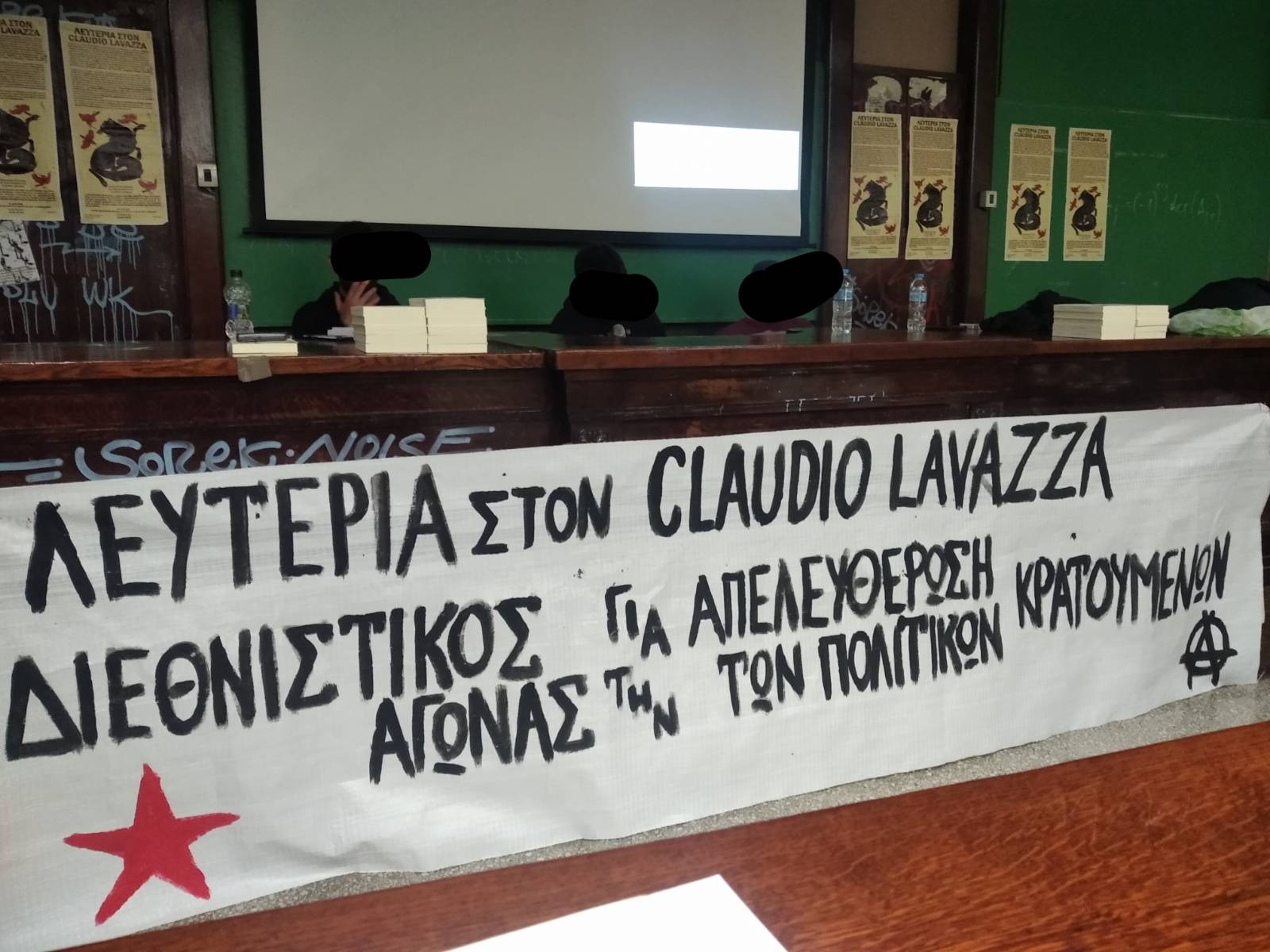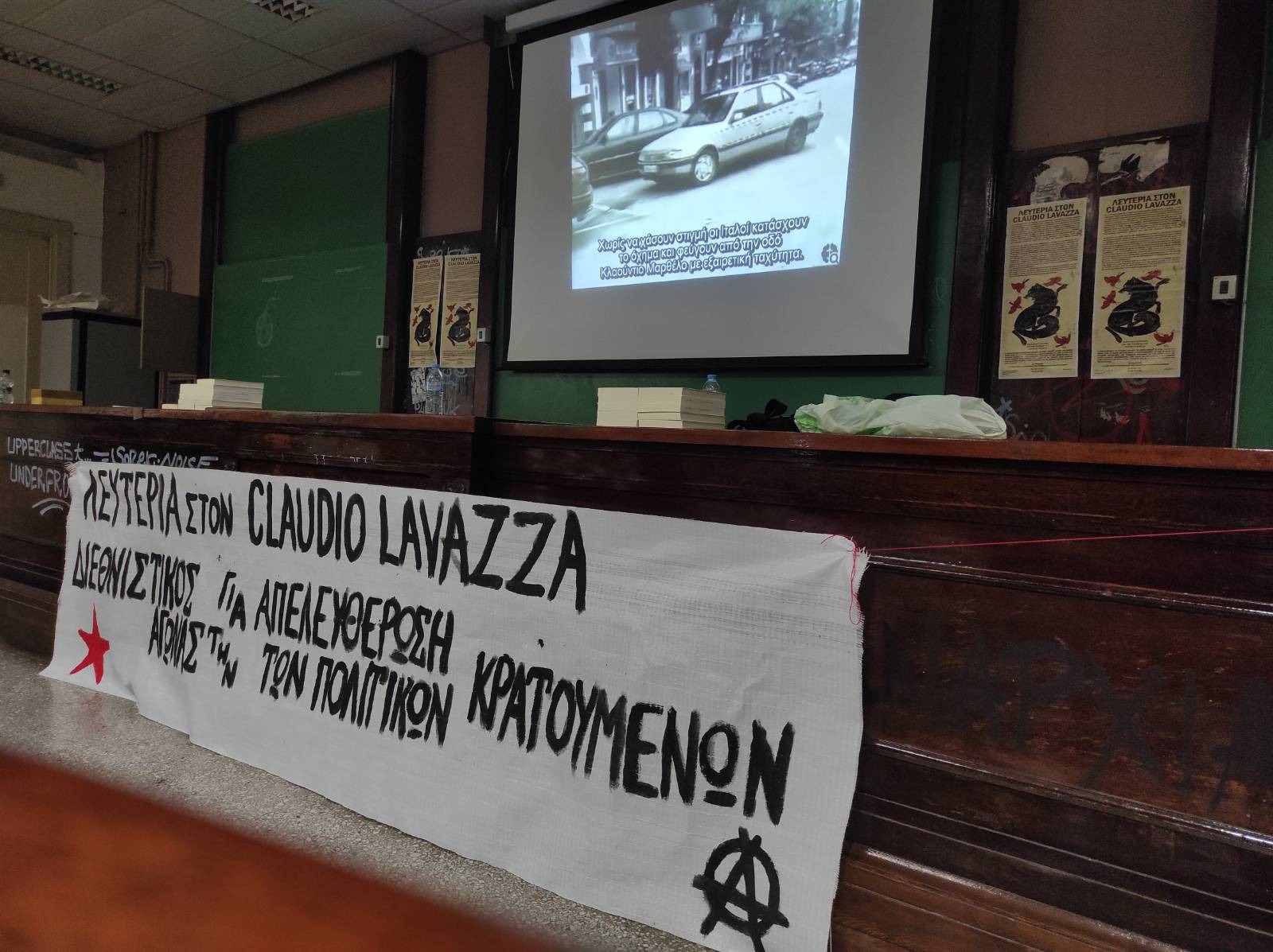

On Thursday, April 14th, the event of the Anarchist Initiative against State Killings, concerning the case of the anarchist comrade Claudio Lavazza, took place at the ASOEE with a relatively massive presence of comrades. The presentation was read as well as the transcript of an interview Claudio has given about his case and a video was shown concerning the expropriation of a bank in Cordoba and the subsequent confrontation with the police forces where he was arrested. Finally, comments and statements were made by comrades about the connection between Claudio’s experience of struggle, especially the years he participated in the Italian movement, and the present day, and it was decided to call an open assembly to organize a meeting at the French embassy on May 17, the day when the comrade’s appeal against the decision of the bourgeois justice system that forces him to serve another 5 years in prison until he is released will be heard. Below is the text of the submission where you can also find a Pdf file.
We will begin our submission by answering the simple question. Why do we consider solidarity with the comrade Claudio Lavazza important today? We answer by saying that in Claudio’s person we see a part of the revolutionary memory of contemporary revolutionary history.
Claudio from an early age was an insurgent proletarian who was actively involved in the mass movement and proletarian struggles of that period in Italy. But what was the historical context that fuelled the great struggles of that period?
“The post-war environment and the Cold War”
On a macro-level, the end of the Second World War and the new balances of terror that took shape in the international environment after the use of nuclear weapons of mass destruction in 1945 in Japan by the US and the subsequent nuclear arms race from 1949 onwards (when the USSR acquired the corresponding technology), influenced the intensity of the historical period of the Cold War, the milestones of which were the Greek civil war (1946-1949), the Chinese revolution in 1949, the Korean civil war (1950-1953), the lifting of the Berlin Wall in 1961 and the Cuban missile crisis a year later in 1962. These developments were decisive for the so-called transition to the so-called ‘peaceful coexistence’ process, which largely involved the establishment of strict non-intervention zones. These zones were in the perceived centre of the western and eastern world, i.e. almost the entire northern hemisphere of the planet, which of course did not prevent any of the main Cold War competitors from intervening even militarily in their own immediate zones of influence and even more so on the periphery of the perceived undeveloped world, moving the hot fronts of warfare to Latin America, Africa and Asia. Continue reading “Athens, Greece: Update and contribution from the event on the case of anarchist Claudio Lavazza on 14 April at ASOEE” →



